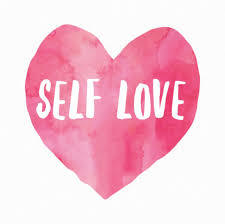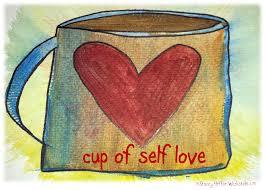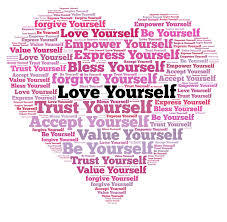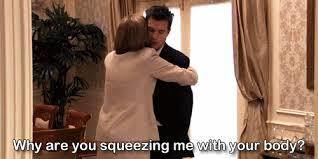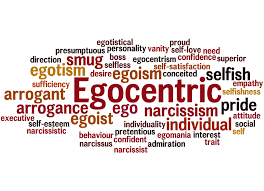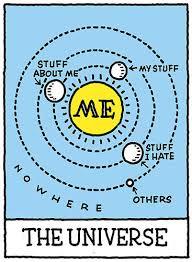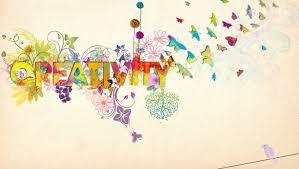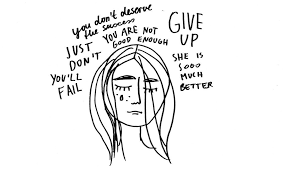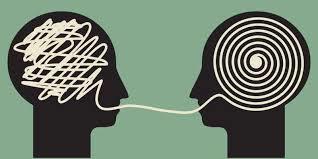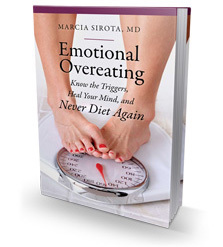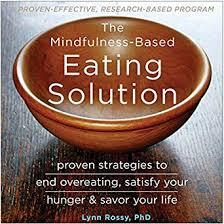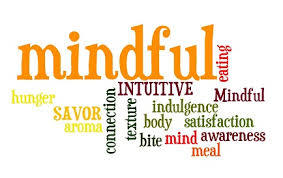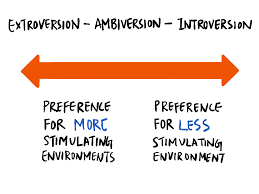Marcia Sirota's Blog, page 25
February 9, 2019
WBN Radio Interview Why People Should Avoid Hugging on Matt Bubala Show
Dr. Sirota was interviewed February 9th, 2019, on WGN Radio with on The Matt Bubala Show. The topic was about her article,“On International Hugging Day Let’s Say “No” to Hugs”. For more, listen here.
February 6, 2019
On Valentine’s Day 2019 Let’s Say “No” To Unconditional Love
We hear a lot these days about unconditional love, and how important it is in relationships. I have to disagree. I think that there’s only one place for unconditional love and that’s from a parent to their child. In all other relationships, I think that love ought to be conditional.
It makes sense for a parent to love their own child, no matter what. They have to, so as to continue caring for the child even when the child behaves badly. But in a romantic relationship, there’s no biological imperative. We have no good reason for loving our partner no matter what. In fact, there are a lot of reasons why we absolutely shouldn’t.
There are many types of people in the world. Some are uncaring, disrespectful and manipulative. These people prey on the nice folks who bend over backwards to understand and forgive. These people are thrilled when we love them unconditionally, because it makes it so much easier for them to get away with their hurtful behavior.
Romantic love should never be unconditional. It should always be conditional on respect, courtesy and consideration. It should be conditional on the other person never mistreating you, manipulating you or abusing you. It should be conditional on the other person always wanting the best for you and doing their best for you.
We squander a lot of our love on people who don’t even come close to deserving it. We adore people who play games with us; run hot and cold with us; are cruel or contemptuous toward us. We give our hearts to people who are ambivalent toward us; can’t commit to us; are aloof toward us.
We tell ourselves (and our friends tell us) that it’s love, so we should be more understanding, more forgiving, more accepting. Unfortunately, all that this does is empower the users and abusers out there to hurt us even more.
We need to lower our tolerance to bad behavior in romantic relationships. We need to expect more and demand more from our partners. We need to throw out the fantasy of unconditional love and tell our prospective partners that our love will be conditional on them treating us right.
There’s a lot of myth-making in the media about unconditional love and forgiveness. It’s rampant on TV and in the movies, but these are fantasies and real life doesn’t work according to the rules of on-screen romance.
On-screen, when people misbehave and we forgive them, it causes them to have an epiphany and be miraculously transformed. Redemption is a huge theme on-screen, but it’s a far less likely occurrence in real life.
In real life, when someone mistreats us and we’re excessively understanding and forgiving, they take it as a free pass to continue treating us badly. There’s no transformation; no redemption; just more of the same hurtful behavior.
As a psychiatrist, I’ve observed over decades that the people who are overly accepting and forgiving of hurtful partners only perpetuate their own suffering. In all my years of practice I’ve never seen a hurtful partner change. I have never seen a hurtful, disrespectful or ambivalent partner transformed or redeemed by unconditional love.
We need to live in the real world when it comes to our love-lives. We need to see that we’re not going to change a hurtful partner by loving them unconditionally. It just doesn’t work that way. Instead, we can get better at choosing kind, caring and respectful partners at the outset; people who are much more likely to treat us well.
We can get better at setting appropriate limits and confronting unacceptable behavior. We can let our partners know that just because we love them it doesn’t mean that they haave a free pass to treat us any way they choose.
We can get better at saying “no” to what we don’t want and we can learn how to state our needs clearly and directly. And if our partner isn’t okay with these things, we can recognize that they’re not the right person for us.
Love is great, love is wonderful. We all could use more love and we all could give more love. However, loving someone should never be confused with tolerating mistreatment, disrespect or abuse.
Loving someone should never be confused with accepting less than what we need or deserve. Love between adults should always be based on mutual respect and consideration, and nothing less.
As Valentine’s Day approaches, let’s say “no” to unconditional love and demand that our romantic relationships only involve love that’s conditional on people treating each-other with kindness, courtesy and the utmost of respect.
Check out my new online course here, on How to Stop People-Pleasing Once and For All.
Sign up here for my free monthly wellness newsletter. March 2019 is all about strategies for dealing with challenging family dynamics.
February 3, 2019
Effective Communication: The Secret To Getting What You Want
Over the years, I’ve written a lot about effective communication. These skills are more vital than ever before, as we’re living in a time of rampant misinformation, misunderstanding and miscommunication.
When we communicate effectively, we get more of what we want and less of what we don’t want.
Effective communication is the ability to briefly and concisely convey the message we want to get across. It’s about speaking clearly but also listening carefully. After all, the root of the word “communicate” is “commune,” or come together.
Effective communication is just as much about hearing as it is about being heard. Too often we’re so focused on whether the other person is listening to us that we forget to listen to them. But, if it’s a one-sided conversation it’s not communication, it’s badgering.
One common problem with communication is that we make assumptions and jump to conclusions. Rather than paying attention to what the other person is saying, we finish their sentence in our mind and come to our own conclusions.
As a psychotherapist, there have been many times when I’ve started a sentence with a patient and they’ve finished it for me, but it wasn’t at all what I was going to say. My patient assumed that I was going in one direction when I was going in another.
In a therapy session it’s not so difficult for the speaker to clarify their intention but if the listener is doing this elsewhere, their tendency toward assumptions can lead to unfortunate misunderstandings and unpleasant interactions.
We may have a sense of where someone is heading in the conversation but it’s always better to be patient and not anticipate their intention.
We need to be open-minded and allow the other person to make their point. Otherwise, we’ll be hearing something that they aren’t saying.
Effective communication has to be clear and direct. We can’t expect the other person to read between the lines or guess at what we’re trying to express. Otherwise, we risk misunderstandings and potential conflicts.
For the same reason, we can’t pretend that we get it when we don’t. The speaker will think that we’re on the same page when we’re actually in a whole other book.
A mistake that we make far too often in communication is being much too vague. We have to say exactly what we mean and not simply hope that the other person gets it. If they don’t hear exactly what we intended to say, they’ll never be able to give us what we want.
Often, in a romantic relationship, we make vague statements when our partner has done something to upset us. We’re afraid to be authentic because they might get angry at us or reject us. What we need to know is that if our partner gets angry at us for telling them that they’ve upset us, they’re not the right partner for us.
Another mistake we make in communicating is keeping things inside when we’re angry. We’re afraid to express our anger because the other person might not like it. We hold it in for as long as we can but then inevitably, it leaks out in passive-aggressive behavior or emotional outbursts.
It’s always better to politely and respectfully tell the other person how we feel. Passive-aggressive behavior is extremely off-putting, as are angry outbursts.
Our attempts to avoid an unpleasant confrontations backfire when we hold in our anger. Also, we need to know that if someone can’t tolerate our anger they aren’t someone who we should associate with.
Of course, expressing anger should never be done with a raised voice. That’s unnecessary and overly aggressive. It’s enough to say, “I’m angry at you for X,” or “When you did Y, it made me angry.” These types of statements are clear and direct but not aggressive.
Expressing our anger this way enables us to closely observe the other person and will tell us whether they’re capable of hearing us and responding appropriately.
The appropriate response to the above types of statements would be something like, “I’m sorry, I didn’t mean to upset you,” or, “I’m sorry. I won’t do it again.” If the person can’t respond in a reasonable way to our polite and respectful expressions of anger, they’re not really a friend.
One caveat: expressing anger in the workplace is a completely different situation. There, it’s often inappropriate to be clear and direct; especially with regard to our supervisors.
We need to be more strategic and subtle so as not to offend or risk jeopardizing our position. In the workplace it’s best to err on the side of caution and not engage in confrontation unless it’s strategically done.
It can be anxiety-provoking to communicate clearly. What if the other person doesn’t like what we’re saying? It’s disappointing to discover that a person we like or admire isn’t someone we can be open with.
On the other hand, if we aren’t clear and direct, the other person won’t know what we think, feel or believe and we’ll never get what we want.
It’s better to be disappointed early on than spend years with someone who can’t negotiate in good faith.
Effective communication allows other people to really know us. This way, if they like us and want to be around us, we know that it’s because of who we are. If they try to shut us down, we know that we’ll never get our needs met so we don’t have to waste any more time on them.
When we don’t communicate effectively people might be with us because they think that we’re someone that we’re not. This can lead to major misunderstandings and frustrations when the truth about how we think and feel finally comes out.
We certainly don’t want to get married to someone based on them assuming that we’re someone that we’re not, and we don’t want to sign up long-term with a company because we assume that their philosophy is aligned with our own when in fact, it’s not.
Part of effective communication is healthy confrontation, which is when we tell the other person about what we must have and what we can’t accept.
One of the biggest mistakes we make in confrontation is in using force when clarity would suffice. We raise our voice or use intense, even threatening words when simply being clear and direct is enough to make our point.
Bullies yell and shout; they send texts and tweets in all-caps but it doesn’t make their message any clearer. Their sole purpose is to intimidate and ultimately silence the other person. This isn’t communication; it’s abuse.
Another mistake we make in confrontation is making “you statements” like “you never do X,” or “you always do Y,” or “you’d better do Z.” The problem with these types of statements is that they put the other person on the defensive and then it’s impossible to know whether they’re capable of hearing us and responding to us appropriately.
It’s always better to make “I statements,” as these build bridges rather than create defensiveness on the part of the listener. We can say, “I feel X,” or “I need Y.” These kinds of statements won’t make the other person feel blamed or coerced.
If the other person becomes hostile or defensive, we can see that it’s not because we delivered the message badly but because the person we’re speaking to isn’t reasonable or responsive to us.
Effective communication shines a light where there’s darkness and enables us to be seen and heard and appreciated for who we are. It shows us who we’re dealing with and empowers us to walk away from anyone who can’t acknowledge our feelings or meet our needs.
Check out my new online course here, on How to Stop People-Pleasing Once and For All.
Sign up here for my free monthly wellness newsletter. March 2019 is all about strategies for dealing with challenging family dynamics.
January 24, 2019
Why We All Need More Self-Love
It’s February 2019 and as Valentine’s Day approaches lots of people are looking for love. Maybe you’re one of them. Maybe you don’t like being single and you really want to be in a long-term, committed relationship.
That’s understandable. Life can be hard and having someone on your side can make everything easier. Having a person who truly cares about you and is there for you can be a wonderful thing. But having a partner is not the cure to everything that ails you.
A partner, a lover, a mate, a spouse; this is highly desirable to many of us, but it’s not a substitute for self-love. Everybody needs self-love. We can live without a partner but it’s much, much harder to live without self-love.
Self-love enables us to take care of ourselves. Without self-love, we won’t bother eating right, exercising, getting enough sleep or taking our vitamins.
Without self-love, we’ll ingest all sorts of toxic substances like drugs and alcohol, not caring how they affect our health. Without self-love, we’ll put ourselves into dangerous situations, not caring about the outcome.
Everyone deserves self-love, but not everyone has it. To understand why this is, you have to go back to childhood as that’s where we learn, or fail to learn, self-love.
Self-love comes from internalizing the love we receive as a child. If we’re given enough love, care and protection while growing up and if we’re spared abuse and neglect, we develop a good amount of self-love. Children take personally what happens to them so if they’re raised with love, they learn self-love.
Conversely, if a child is brought up in an atmosphere of violence or neglect; if they’re not sufficiently nurtured or protected, they grow up lacking self-love. Depending on how hurtful or neglectful the environment was, and also on how resilient the child was, the little person can grow up lacking some degree of self-love.
When you grow up with a lot of love, you feel good about yourself and therefore you take care of yourself. You put yourself in constructive situations and you avoid painful ones; you engage in positive activities because you feel confident about your abilities and entitled to all sorts of good things. All of this reinforces your self-love.
If you grow up with a lack of self-love, you tend to neglect your self-care. You sometimes put yourself in harm’s way and you might associate with people who treat you just as badly as your parents or care-takers did. All of this reinforces your lack of self-love.
Self-love creates a positive spiral of better choices, better relationships, a better life and more self-love. A lack of self-love creates a negative spiral of poor choices, hurtful relationships, an unhappy life and less self-love.
So how do you find self-love if you’ve grown up without it? How do you learn to love yourself, especially if you’ve been making choices that cause you to feel bad about yourself?
You need to start treating yourself the way your parents or guardians should have treated you when you were little. You need to accept yourself, validate yourself, be more understanding with yourself and forgive yourself. You need to have compassion for yourself and put your life choices into perspective.
You might think you’re not good enough, but maybe you’re just wounded from a bad beginning and a life of choices based on a lack of self-love. If you start to forgive, understand and love yourself more, imagine how much better things could be. You could reverse the direction of that spiral you’re in.
Even if you’re only lacking a bit of self-love, it’s always better to have more. You’ll find that you’re calmer, more confident and happier when you love yourself that much more. You’ll be more willing to try new things and engage in new relationships because you’ll have the expectation of greater success.
You’ll take better care of yourself when you love yourself more and you won’t be so desperate to be in a relationship. You’ll be able to hold out for the right person, rather than settling for the person who’s available right now.
Another way to build self-love is to do good things in the world. I’m not talking about being a people-pleaser who’s nice to everybody in the hopes of winning their approval. I’m talking about acts of kindness, generosity and altruism.
Really being there for others and giving a helping hand when it’s needed will boost your self-love and bring you joy as well.
Making a positive contribution to your community will boost self love. You can engage in activities like clean-ups of the beach-front or the local park; doing a clothing drive or bake sale for new immigrants; setting up a recycling center, or planting a community garden. Participating in positive, constructive activities is great for building self-love.
Loving others is also great for increasing self-love. I’m not talking about romantic love, but rather, opening your heart to everyone and caring about their welfare. In this crazy world we can be so jealous, competitive and paranoid toward one-another. Being more loving and open-hearted is good for the world and also helps build self-love.
Self-love makes everything better. Your relationships are better because you won’t tolerate disrespect and because you feel entitled to being well-treated. At work, self-love makes you strive to do your best and makes you feel entitled to good pay and promotions. It also makes you much less tolerant of mistreatment by your boss or your colleagues.
Self-love makes you a more loving person. Just as loving others helps build your self-love, having more self-love makes all the love within you overflow out onto others. It’s a positive circle: love others more and you’ll love yourself more; love yourself more and you’ll love others more.
Whether you’re single this coming Valentine’s Day or in a successful relationship; whether you’re thinking about breaking up with your partner or contemplating on-line dating, having more self-love will make everything better. Even if you spend Valentine’s Day alone, you can still be your own Valentine if you have self-love.
Sign up here for my new online course, How to Stop Overeating, Once and For All.
Sign up here for my free monthly wellness newsletter. March 2019 is all about strategies for dealing with challenging family dynamics.
How to Survive Being Single on Valentine’s Day 2019
As Valentine’s Day 2019 approaches, I’ve been hearing from some of my patients that they’re pretty unhappy about being single. They wish that they were in a relationship and they’re convinced that their life would be so much better, if they only had somebody to love.
I understand where they’re coming from. Times are crazier than ever and having a warm, loving person to cuddle up with at night can alleviate a lot of stress. Having someone to share our hopes and dreams with and having the opportunity to be there for one-other is great, but it’s not always easy to find that special person.
If you want to find love I would definitely encourage you to keep trying. One way to meet new people is to get involved in an activity that you do on a regular basis. Whether it’s a skiing club, hiking club, biking club or tennis club; a dance class, art class, choir or church group, seeing the same people repeatedly and having at least one thing in common with them will greatly increase your chances of finding a mate.
Also, it’s more fun and meaningful to live your life doing the things that you feel passionate about. When you’re happier, people will find you more appealing and someone might even start talking to you in the coffee line just because they like your smile.
Doing all of this is going to make your life better but it’s no guarantee that you’ll meet your soulmate before Valentine’s Day arrives. You have to be patient with the process and not lose hope, and you have to be able to take care of yourself in the meantime.
If you find yourself without a partner this coming Valentine’s Day, I offer up a few suggestions.
1: Being single is not a disease. It doesn’t help if you put yourself down for not having a a partner on this night. You’re not a “loser” or a “failure” if you haven’t found love.
You’re not single because of any inadequacies or shortcomings within you. Often, finding that special someone is just the luck of the draw. Instead of berating yourself for being unattached, try to put things in perspective. Think about all the good things you have in your life and be grateful for those.
2: There’s no substitute for self-love. When you nurture yourself, you feel fulfilled. Sure, you might still want a partner but at least you won’t feel like you desperately need one. And, when you’re filled with self-love, you’ll be walking around feeling complete.
With self-love, you won’t feel the burning need for someone else to compensate for the lack of love in your life. If you do meet someone, your relationship will be based on caring and sharing, rather than needing the other person to fill a void inside you.
3: Being desperate always backfires. Desperation makes you jump at the first person you see, rather than waiting for the right person to come along. Love, even a real connection, isn’t something you can force.
You may or may not someday find the love of your life – hopefully, you will – but it won’t happen by trying too hard. Live your best life and be your best self and if the person of your dreams is out there, they’re likely to find you.
4: Say no to self-pity, yes to being proactive. You don’t have to be desperate but you can make yourself more available. Get out there and join that club, take that class or connect with a social group.
Participate in sports or community activities. Get involved with things that you feel passionate about and over time, you’re likely to make some new friends; maybe even meet someone nice.
5: Meanwhile, feed your soul. Get out into nature and commune with the universe. Take part in spiritual or religious services. Meditate, do yoga, practice mindfulness. Any of these will help you to feel happy and fulfilled, whether or not you find love by Valentine’s Day.
6: Rediscover the artist within you. We were all creative as kids; it’s just that some of us forgot how great it is to create. Doing art of any type is going to be incredibly uplifting and meaningful. Art is something that you can do just for yourself.
Being creative is empowering because doing art makes you happy. And, if you gain some mastery, other people will likely want to write, or dance, or play music with you. Creative collaborations may or may not lead to love but they’re fantastically fun.
7: Value your friends and family. You have people in your life, right now, who love and accept you unconditionally and who’ll be there for you whenever you need them.
You may not have a romantic partner but you do have love in your life. Be grateful for these relationships and put energy into keeping them strong and you’ll feel a lot less lonely on Valentine’s Day.
8: Giving love fills you with love. Being a kind, caring, generous person will bring you fulfillment and a deeper sense of connection with others. Altruism is extremely rewarding.
Studies have shown how the happiest people are the ones who are the most generous. You may or may not find your soul-mate while you’re out there giving to others but your life will be rich and filled with joy and meaning.
Valentine’s Day comes once a year. Whether or not you have a date that night, you can have plenty of love, fun and fulfillment throughout the year. Follow the above suggestions and you’ll never have to worry about Valentine’s Day again.
Sign up here for my new online course, How to Stop Overeating, Once and For All.
Sign up here for my free monthly wellness newsletter. March 2019 is all about dealing with challenging family dynamics.
January 21, 2019
On International Hugging Day Let’s Say “No” to Hugs
International Hugging Day is here and I want to make a case against hugs. I think that there should be a lot less hugging going around. You might think this a rather antisocial attitude but in fact, I’m writing on behalf of all the people out there who become filled with anxiety at just the mention of a hug.
While it’s true that a lot of people view hugging as a wonderful way to connect and commune, there are many others who feel quite the opposite.
And while many people offer perfectly innocent, friendly hugs, there are enough creeps out there who use a hug as an opportunity to rub up against someone inappropriately, forever ruining hugs for the person on the receiving end of this form of assault.
Those who love hugging as a friendly gesture will rush to embrace you, whether you’re an old friend or someone whom they’ve just met. Friendly huggers tend to be outgoing individuals who like to express their warmth in a physical manner.
The thing is, not everybody experiences a hug as a friendly embrace. To some, all hugs are unpleasant, undesirable types of contact to be avoided if at all possible.
You might be wondering what could possibly be wrong with a friendly hug. You might find it counter-intuitive for someone to reject this type of hug, but people have good reasons for doing so.
In my practice as a psychotherapist I’ve encountered many people who endured traumatic life experiences that made them highly averse to being hugged.
Many of these individuals grew up having their boundaries violated or had these experiences (including having received inappropriate hugs) as adults. They were abused either physically or sexually; they were groped or caressed in creepy or intimidating ways.
For these individuals, the experience of being touched has become much more complicated and confusing. These survivors of abuse need to feel really safe and really comfortable before they’d consent to a hug, if at all.
There are other reasons why some people might be uncomfortable with purely friendly hugs. Some have religious objections to physical contact with adults of the opposite sex. An opposite-sex hug for these individuals would be seen as inappropriate and possibly even offensive.
Some people are shy or introverted and a hug from anyone other than a very close connection would feel overly-intimate and perhaps even distressing. These people would much prefer a non-physical type of interaction.
For those who’ve experienced boundary violations, hugs today may be colored by their trauma and imbued with too many negative associations from the past. For those who are exceedingly shy, hugs might be an unpleasant prospect but refusing a hug might feel even more uncomfortable.
There’s no clear hugging etiquette in our society. The unspoken expectation is that when someone offers you a hug you should accept it and appreciate it. So, when someone who doesn’t want to be hugged is approached by a potential hugger, they rarely know what to say.
Many people who are uncomfortable with hugging are even more uncomfortable with the idea of appearing rude by rejecting the hug.
On the spot, it’s really hard to think of a simple, direct statement like, “No thanks; I’m not into hugs.” Perhaps the traumatized person carries some shame and they’re uncomfortable with the idea of having to explain why they’re averse to being hugged. Perhaps the shy person feels even more awkward with the prospect of being assertive.
The person on the receiving end of an unwanted hug will often choose the lesser of two evils and stand there tolerating the hug, rather than risk insulting the hugger or getting into why they don’t like being hugged. But no-one should have to tolerate an unpleasant experience for fear of appearing rude or in order to avoid some painful self-disclosure.
I’d like to reassure all the hug-averse individuals out there that you shouldn’t need to explain or justify your position. It’s enough to say, “No thank-you,” when someone approaches you with arms open wide. The other person shouldn’t ask you “Why not?” Nor should they pressure you into accepting the hug. Both of these things would be insensitive and impolite.
If a hugger is operating out of genuine warmth and affection, they should respect your boundaries and accept the fact that not everyone will welcome their hugs. Good intentions don’t necessarily make an action acceptable to everyone else.
And if the hugger has more nasty intentions, these will become clear when you say “No” to their hug and nevertheless, they continue to press you for one.
For many years now, I’ve had an explicit no-hug policy in my psychotherapy practice. I don’t hug my patients and I ask my patients not to hug one-another during group therapy sessions or at my workshops.
Some people don’t feel entitled to say “no” to a hug because issues with self-worth. They’ll allow their boundaries to be violated repeatedly, accepting hugs that they really don’t want. Sadly, the huggers think that they’re being kind and never realize how uncomfortable the hug receiver is feeling.
People accepting unwanted hugs in therapy group can build up resentment toward the huggers and this resentment could eventually leak out as an angry outburst or passive-aggressive behavior.
They can start to shut down emotionally and create pockets of disconnection among the group participants. Having a no-hug policy prevents a lot of misunderstandings and upset feelings.
So, while a hug is a lovely thing to give and receive under the right circumstances, it can also be a charged experience. A hug could be an opportunity for bonding or a trigger to some painful trauma. It can be a friendly overture or an unwanted boundary violation.
For this reason, it’s important to exercise caution around hugs. You always have to consider the possibility that the person on the giving end might not be as innocent as they appear and that the person on the receiving end might not be as enthusiastic about hugs as you are.
My policy has always been, “When in doubt, don’t.” It’s a good policy to ask your close friends and family members, “Can I hug you?” before offering them a hug, and when meeting a new person or just getting to know someone, I suggest that you err on the side of caution and avoid the hug altogether.
You don’t know what the other person has been through or how they might perceive a hug. They might think of a hug as the best thing ever or they might have an overpowering urge to run and hide when they see you coming at them with arms stretched out wide.
Sign up here for my free monthly wellness newsletter. February 2019 is all about learning to love yourself.
Sign up here for my new online course, How to Stop Overeating, Once and For All.
January 18, 2019
Why a Narcissist Can Never Be Happy
We’re living in an era of narcissism. Narcissists are being elected to the highest levels of government, both here in Ontario and in the United States. Too many of us are being taken in by the self-delusional confidence of these narcissists, believing that it represents competence when all it demonstrates is the grandiosity of an over-inflated ego.
There are many traits that narcissists have in common: an inflated sense of self-importance; extreme over-entitlement; a profound lack of empathy; the tendency to view others as merely a means to an end; the capacity for profound insensitivity and cruelty.
Narcissists are users and abusers, plain and simple. They’re bullies and con artists; manipulators and oppressors. They’re blowhards and charmers, smiling at us one minute and cutting our throat the next.
We might be conned into thinking that there’s substance behind all their grandiose posturing, but the narcissist is an empty shell, driven by a fierce and undying need to fill a gnawing sense of emptiness deep within.
The narcissist is driven by a powerful inner need for gratification. They mistakenly believe that this gratification will come through the exercise of power and influence and the accumulation of money and possessions.
The narcissist will fight to accumulate more money and more stuff; to wield more power and influence; to bend more people to their will, but it will never be enough. The narcissist doesn’t understand that more and more of the wrong solution doesn’t eventually make it the right solution.
The narcissist would be a fascinating psychological case-study and a truly tragic figure, were they not so exceedingly dangerous, both on the personal and the political front. They will stop at nothing to get what they want, but they’re doomed never to find satisfaction because their behavior can never lead to happiness or fulfillment.
The truth is that nothing can make a narcissist happy, because their agenda of dominance, exploitation and oppression creates an ever-expanding chasm within their soul. The narcissist can take pleasure in the exercise of power and the subjugation of others, but they can’t feel happiness from any source.
They can’t feel the joy of a loving relationship – they’re incapable of love. They can’t feel the fulfillment of a job well done – they’re incapable of taking satisfaction from positive accomplishments – and they can’t feel the contentment of doing a good deed for others – they’re incapable of empathy.
The narcissist wrongly believes that by using or abusing, taking or stealing they’ll feel better, but it doesn’t work. The human brain isn’t wired that way. We humans feel happiest when we’re kind, generous and altruistic; not when we’re selfish, greedy or cruel.
Narcissists get a rush of pleasure when they “win.” Unfortunately, pleasure is superficial and fleeting. The pleasure the narcissist feels is similar to that of a drug high. It’s an intensely thrilling but ultimately meaningless experience that leaves them immediately craving the next rush.
One of the narcissist’s fatal flaws is that they can’t differentiate pleasure and happiness. They continue to chase after the former at the expense of the latter, which leaves them emptier and more miserable after every display of dominance.
The narcissist will always confuse the currency of dominance with the currency of happiness, and these are totally opposite.
Happiness comes from being kind and loving; from doing good deeds and being a good person; from feeling a deep sense of connection with others; from making a positive contribution and from living a meaningful life. Using and abusing others can never, ever lead to happiness.
After years of pursuing their self-serving but ineffective agenda, the narcissist ultimately becomes enraged. They mistakenly believe that their problem is that they don’t have enough power, money or influence; that they haven’t sufficiently bullied the people around them into submission.
The narcissist is incapable of taking responsibility for their own actions so they’ll always blame their victims, accusing them of being the hurtful ones and ratcheting up their acts of brutality and oppression.
The narcissist believes that everyone around them is there for only one reason: to meet their needs. If the narcissist isn’t getting their needs met – and by definition, they never will – they’re convinced that it must be the fault of the people around them.
As time goes on, the narcissist becomes more and more furious and more and more destructive. They exact revenge on everyone whom they perceive as interfering with their gratification because they can never see that the problem lies within them.
They end up bent on two goals: pursuing their agenda of greed and punishing those who get in their way, but neither of these will ever make them happy.
If happiness is defined as a deep and abiding sense of contentment, satisfaction and inner peace, occasionally sprinkled with joy, then by definition, a narcissist can never be happy.
In fact, it’s their constant, nagging sense of dissatisfaction and rage that drives them to repeatedly pursue their misguided agenda. They live in the false hope of finding some modicum of solace for their incessant fury and need but their pattern of behavior traps them in an endless feedback loop of empty pleasures, meaningless vendettas and an ever-expanding inner abyss.
The narcissist will never stop behaving badly because their actions will never give them what they want. They’ll never be happy and that’s exactly what drives them to keep on pursuing their wrong-headed and extremely destructive agenda. I’d feel pity for them, were it not for the fact that they do so much harm to others.
Sign up here for my free monthly wellness newsletter. February 2019 is all about learning to love yourself.
Sign up here for my new online course, How to Stop Overeating, Once and For All.
January 12, 2019
It’s International Creativity Monday: Time to Release Your Innate Creativity.
Monday, January 14th is International Creativity Monday. Its aim is to promote creativity in everyone, everywhere. Unfortunately, many people experience significant blocks to their self-expression.
Many of us are overly critical of our creative output. We look at what we’re doing and we feel that it’s just not good enough, and this makes us want to give up. If more of us are going to be creative we need to get to the bottom of these obstacles to our creativity and find a meaningful solution to the problem of being creatively stuck.
Every child starts out being creative. They dance around the house and sing at the top of their lungs. They make up amazing stories that they act out for their families. They draw and paint constantly, and they do all of it without any self-consciousness whatsoever. But then at some point, for many of us, the self-consciousness comes in and the creativity dries up.
There’s a voice inside our head – not a real voice but an inner monologue – that’s constantly telling us we’re not good enough, that we’ll never measure up and that we’re so incompetent we shouldn’t even bother to try being creative.
This is the “inner critic.” It pretends to be the voice of reason but in fact, it’s a malevolent force whose only purpose is to shut us down and keep us from being our best selves.
The inner critic isn’t something we’re born with. It’s the internalized voices of all the people we grew up with who were excessively critical toward us. It’s the voices of our parents, relatives, teachers, coaches and clergy.
Any and all negative messages we received while growing up become consolidated into this inner critical voice and as adults, the voice plagues us with its constant negativity about our abilities and potential.
As well, the inner critic doesn’t allow us to acknowledge any of our abilities, accomplishments or successes. When we achieve something, it tells us that it was a “fluke” and that we won’t be able to repeat it.
If we make a mistake or experience a failure the inner critic insists that this is who we really are. In this way, it constantly reinforces our self-doubt and it undermines any confidence we might have.
When it comes to our creativity, the inner critic tells us that nothing we ever do is good enough, interesting enough or original enough. It tells us that we can’t draw; that our painting technique is simplistic and our sense of design is flawed; that we can’t carry a tune, our dance steps are clumsy and our acting is wooden. The critic harps at us constantly, making us want to give up anything even slightly creative.
What kind of messages does a child hear to cause them to develop an inner critic? The messages go like this: “You sure that’s a dog? It doesn’t look like a dog.” Or, “It doesn’t matter if you can’t draw. You won’t need it in med school.” Or, “Why did you make the people’s faces blue and their hands green? Those aren’t the right colors.”
The people saying this might not intend to squelch the child’s creativity, but that’s the result almost every time, and that’s why all of us start out dancing, singing, drawing, writing and acting but far less of us continue to do so.
Many of us who’ve stopped being creative have been made to feel self-conscious and inadequate. We’ve internalized all the perhaps well-meaning but ultimately creativity-crushing critiques we heard from adults when we were growing up.
When we do try something creative today, we feel like pretenders, about to be “found out” by those in the know. Even many successful artists, actors, writers, and musicians today are convinced that any day now, everyone will discover what a fraud they really are.
There’s a psychological pattern called “impostor syndrome,” in which a person is unable to acknowledge their talents or abilities and can’t give themselves credit for their accomplishments.
They constantly fear being exposed as a faker, convinced that they’re nowhere near as good as others seem to think they are. They figure that whatever success they have must be due to luck or having somehow fooled others into thinking that they’re legitimate.
The inner critic perpetuates this syndrome, making a person constantly doubt their own value and never allowing them to take credit for anything positive they’ve done. This combination of self-doubt and being unable to acknowledge their success makes it impossible for a person to ever feel good about their creativity.
If we want to celebrate International Creativity Monday, we have to break free of impostor syndrome and silence the inner critic. We need to recognize that inner critical voice as the creativity-killer it is and stop believing the lies it’s been telling us.
We need to trust in our abilities, especially if we’ve achieved a measure of success. And if we’re beginners, we need to remind ourselves that no-one starts off brilliant but with hard work over time, it’s impossible not to improve.
We need to let go of perfection and see that being good is good enough. Being an artist means that sometimes our work is going to be amazing and sometimes it’s going to the recycle bin. If we can recognize that creativity is a process and not be so hung up on the product, our creativity will flourish.
We need to get away from people who repeat the same rubbish as the inner critic. We must avoid the judgmental haters who make us want to give up. The job of commentators should be to encourage us to keep going.
We need to recognize that the only valuable type of critique is the type that empowers the artist to do better and never the type that humiliates the artist or fills them with despair.
The world is enriched by creativity. Artistic expression brings joy to the doer and the viewer. Creativity bridges gaps and brings people together. Creativity is at the heart of problem solving in every sphere of endeavor. We need creativity now, more than ever.
Everyone is creative, deep down inside. If we stop believing the inner and outer critics who say that we’re never going to measure up, we can be reclaim our innate creativity and who knows, maybe even makes something beautiful, now and then.
Sign up here for my free monthly wellness newsletter. February 2019 is all about learning to love yourself.
Sign up here for my new online course, How to Stop Overeating, Once and For All.
January 6, 2019
Make 2019 the Year You Don’t Go On a Diet
It’s early January 2019, which makes it Diet Resolution Week. That’s supposed to mean that you keep your resolution to go on a diet in the New Year. But what if you choose to do something different this year? What if you make 2019 the year you don’t go on a diet?
It’s a scientifically-proven fact that diets don’t work. They don’t create lasting weight loss; they certainly don’t confer any health advantages – in fact, yo-yo dieting has been shown to be worse for your health than obesity – and they don’t make people happy.
In my book, Emotional Overeating: Know the Triggers, Heal Your Mind and Never Diet Again, I talk about the unmet emotional needs and the deep-seated emotional wounds that drive us to overeat and how the whole concept of dieting makes no sense because it ignores the cause of overeating.
People who overeat are driven by deep emotional urges which have nothing to do with physical hunger. These urges are reinforced by the brain’s tendency toward addiction. If we’re going to overcome compulsive eating, dieting is not the way to do it.
We overeat compulsively because we’re using food to self-soothe, self-nurture and even to numb our emotional pain. Dieting doesn’t address any of these needs; in fact by restricting our primary source of self-soothing and nurturing, it leaves us feeling even more deprived than ever. This is one important reason why diets repeatedly fail.
The vast majority of people who lose weight through dieting eventually gain back all the weight plus interest, and those few who keep it off only do so because they’re spending their lives miserably restricting food; often see-sawing up and down and never finding joy or peace.
Instead of going on a diet in 2019, it’s time to explore your relationship with food; with what you’re eating and why you’re eating it. It’s time to become more mindful about food and eating and more empowered to make positive, healthy choices about how, when, why and what you eat.
In her book, The Mindfulness-Based Eating Solution: Proven Strategies to End Overeating, Satisfy Your Hunger, and Savor Your Life, psychologist Lynn Rossy demonstrates how to have a more mindful, and joyful, approach to food and eating.
Rossy talks about how you can take yourself off automatic pilot and ask yourself what you’re really hungry for. She shows you the difference between depriving yourself of the things you enjoy and making mindful choices about what you’re eating.
Recently, I interviewed Dr. Rossy for my Ruthless Compassion podcast, where you can learn more about the subject of mindfulness-based eating.
In my book, Emotional Overeating, I talk about the emotional wounds that lead to a problematic relationship with food and I offer my four-pronged approach for healing these wounds and enabling people to let go of their cravings for unhealthy foods.
In the book, I talk about how we’re able to release our intense food cravings when we give ourselves the love, nurturing and validation we’ve been using food to replace. When we can take care of ourselves emotionally, we don’t have to use food for this.
Mindfulness-based eating is an excellent strategy for people who have eating and food issues, especially when this method is combined with emotional self-care.
Whether you’ve been anorexic, bulimic, a binge eater or a combination of the above, the mindfulness-based approach to eating can help you normalize your relationship with food and bring back the joy in meal-time.
In her book, Rossy talks about how by being mindful, you can enjoy some of the “forbidden” foods that you feel guilty about eating, but you can do so in moderation by using mindfulness techniques.
One example she shared with me in the podcast is that if you love ice cream, you can go to the local shop and thoroughly enjoy one scoop rather than buying a container, taking it home, and finishing off the whole thing in one sitting.
Mindfulness gives us a sense of empowerment because it allows us to make conscious, deliberate choices about what we want and what’s best for us in every moment.
When it comes to eating, mindfulness enables us to be in charge of our food choices, as opposed to being driven by powerful emotional urges.
The problem with responding to our food cravings is that we don’t really enjoy our food when we’re eating to fulfill an urge. We might have a small sense of relief after a binge, but compulsive eating never brings us pleasure or joy.
We eat for the pleasure of it and for our well-being, but no-one wants to be enslaved by their food cravings. No-one wants to feel out of control of their urge to overeat.
We all want to feel free to make the choices that are best for us. With mindfulness, we can release our overpowering cravings and at the same time, take great satisfaction from our food.
Rossy’s book on mindfulness-based eating complements my four-pronged approach to overcoming addiction. Both books employ mindfulness techniques and both show you how to regain the joy in eating.
Food should never be something we feel guilty about and eating should never be something that we’re ashamed of.
Our bodies shouldn’t be a source of embarrassment, either. With emotional healing and mindfulness-based eating, we can let go of our complicated, unhappy relationship with food and weight and start taking pleasure in eating once again.
Mindfulness is essential in every aspect of life. We want to be conscious and aware in our personal relationships so as to have more positive, constructive interactions; we want to be tuned in at work so that we can maximize our chances of success, and we want to be self-aware around our health choices so that we can be our best selves and live our best lives.
Let 2019 be the year you choose not to diet, and instead, let it be the year that you focus on emotional healing, self-care and mindfulness-based eating.
Sign up here for my free monthly wellness newsletter. February 2019 is all about learning to love yourself.
Sign up here for my new online course, How to Stop Overeating, Once and For All.
January 3, 2019
It’s World Introvert Day. Do You Think You’re an Introvert?
This week saw January 2nd, World Introvert Day, and I’m celebrating. I’m one of the 15% of the population who calls themselves an introvert and I’m feeling pretty good about it.
When I was growing up I didn’t know that there were extroverts and introverts in the world. I thought that there were simply people. I had always wondered as a kid why I had some very different likes and dislikes, compared to my peers. When I read the book Quiet: The Power of Introverts in a World That Can’t Stop Talking by Susan Cain, I felt like I’d finally found my people.
It’s always been a bit harder to be the person at the large gathering who’d rather be at home or the person who’s first to leave the dinner party. In a social situation I’m great with a maximum of four people, but put me in a crowd, especially a noisy one, and I’m not going to be happy. I thought that this was my own unique issue but now I’m relieved to see that introverts everywhere feel the same way.
What Susan Cain said in her book has been revelatory for us introverts and hopefully, explanatory to all the extroverts out there who think of us as “weird” or “defective” in some way. Being an introvert is not a pathological state; it’s an inborn temperament and it confers a number of significant advantages.
Introverts think before they speak and before they act. They’re more internally motivated, as opposed to reward-seeking. They tend to be more modest, so they don’t assume that they’re always right. In fact, they act as great balances for the extroverted doers and bold risk-takers who may need a bit of tempering.
In an article by Jenn Granneman in the magazine Introvert, Dear, the author describes many attributes of introverts, including the fact that we’re excellent “problem-solvers and idea-generators,” as well as “better team players than extroverts over the long run.” She describes introverts as better at persevering and sticking with problems and as excellent writers and creatives, in general.
Ms. Granneman says that introverts can “bring incredible depth” to their relationships and at the same time, are “super low maintenance friends and employees.” She lists some famous creative introverts, including Lady Gaga, Steven Spielberg, Gwyneth Paltrow and Elton John. She lists some public figures who are introverts as well, including Mother Theresa, Bill Gates and Barack Obama.
I always wondered why I needed to take some alone time after a long day at work or after being out at a social gathering. Now I understand that introverts recharge by being alone, whereas extroverts recharge by being with other people.
The thing that everyone needs to understand is that introverts aren’t antisocial. We don’t dislike other people. It’s just that we aren’t crazy about crowds, especially noisy ones, as we don’t do well with highly stimulating environments. Introverts can be very loving and fun to be with when we’re not feeling overwhelmed by a crowd of acquaintances or worse, strangers.
Introverts can be more thoughtful and sensitive; which is not to say that extroverts can’t be this way either. Spending quiet time alone with our thoughts can give us introverts an advantage when it comes to creativity and career-building. A lot of my best ideas have come when I was alone, just thinking.
Introverts are fortunate in that we enjoy our alone time. We can always think of something to do to amuse ourselves. We often have solitary hobbies, like writing or painting, stamp collecting or reading, and we enjoy doing things like going for walks on our own. This doesn’t mean that we don’t enjoy spending time with other people; it’s just that we’re perfectly happy to be by ourselves.
Often I used to wonder why, as an introvert, I could be fearless in speaking to large groups of people. Susan Cain explained in Quiet that when an introvert is passionate about something, they can lose their natural reserve. This has been the case for me when I appear on television or do live radio interviews. I love sharing the things I’m passionate about with others so I feel very comfortable appearing on air.
Introverts are happy being in relationships with both types of people. I have friends who are bigger introverts than me and friends who are extreme extroverts. Sometimes, being around the extroverts can be a bit overwhelming especially at gatherings in which all their extrovert friends and family members talk loudly and at the same time. That’s usually about the time I quietly make my exit.
The good news is that my extroverted friends and loved ones understand that being an introvert is just part of who I am. They understand that even though they might enjoy certain types of social situations, I may not. If I need to leave a party early nobody holds it against me. They’re just glad I showed up in the first place.
One really important point that Ms. Cain makes in her book Quiet is that introverted children shouldn’t be forced to socialize with their peers in the same way as the extroverted children are expected to. She makes a case for being understanding toward these kids and accepting that their social style is not wrong; it’s just different.
I’m happy that Ms. Cain’s book came out, so that more introverts can see that there’s nothing wrong with their need for quiet alone-time, and so that more extroverts can see that it’s not a problem when their introverted friends and loved ones need to go off and be alone, sometimes.
As the famous introvert Greta Garbo is rumored to have said, “I want to be left alone.” We introverts don’t want this all the time, but occasionally it’s exactly what we need. Give us a few hours to recharge our batteries and we’ll be back out in the crowd with all the extroverts, at least for as long as we can stand it.
Sign up here for my free monthly wellness newsletter. February 2019 is all about learning to love yourself.
Sign up here for my new online course, How to Stop Overeating, Once and For All.
Marcia Sirota's Blog
- Marcia Sirota's profile
- 1 follower









